Sony's PlayStation 4 goes on sale in China

The hugely popular Sony PlayStation 4 gaming console has finally arrived to China, but the Chinese still have very little reason to rejoice.
There are a total of six games which can, at this moment, be played in China, and those are Knack, Dynasty Warriors 8, Trials Fusion, Rayman Legends, King of WuShu and Mr. Pumpkin’s Adventure.
Xbox One selling badly in China

It was big news last year when Microsoft announced that it would officially start selling the Xbox One in China. The original September launch date came and went ("Despite strong and steady progress, we are going to need a bit more time to deliver the best experiences possible for our fans in China"), but eventually the next gen console made it on sale.
Although China gave the green-light for the sale of 5 million Xbox units, actual sales have been way, way below that. Launch numbers (including pre-orders) were just 100,000 units, and the company responsible for Xbox One sales in China has posted huge losses.
China drops leading western tech brands for state purchases
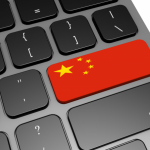
China has decided to remove some of the world’s leading technology brands from its state approved purchase lists and replace them with thousands of locally built products.
Some say this move comes as a response to revelations of widespread cyber-surveillance conducted by the West, while others believe this is more of a way for China to protect domestic technology industry from fierce competition.
Top 10 Chinese smartphones
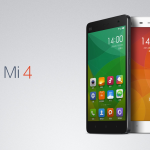
China’s smartphone market is the largest in the world, but some of the country’s major players including Xiaomi and Lenovo have found that, with the domestic market reaching saturation point, they need to look internationally for further growth.
To celebrate the Chinese New Year we’ve taken a look at ten of the best handsets to emerge from the Asian country.
Google launches YouTube channel for Chinese-speaking developers -- 谷歌开发者视频中文频道

The Earth is one place, where all human beings are family. True, we may use a different language or live in different countries, but we are all equal. In America, for instance, there is no official language; English is most popular, but it's not written in stone as the one true language. The USA is a melting pot, where all languages and cultures are celebrated.
China in particular, is a big contributor to the world of technology; both for hardware and software. Whether a developer is Chinese and residing in China, or an American that speaks only Chinese, Google has found a great way to show respect and support; the Chinese Google Developers YouTube channel.
Smartphones: Apple ties with Samsung, Android still growing, Windows Phone still failing

Samsung is no longer the leading smartphone vendor. According to a new report from Strategy Analytics, Apple caught up with the South Korean maker in Q4 2014, thanks to a record number of iPhone shipments totaling 74.5 million units. The two players now share the top spot on the podium.
How did it come to this? Well, it's simple. Apple's shipments increased from 51 million units by 46.07 percent year-over-year, while Samsung's shipments decreased from 86 million units by 13.37 percent, each converging to 19.6 percent market share. Thanks to the strong performance shown by iPhones, iOS' market share rose also, to 19.6 percent from 17.6 percent a year prior, while Android's market share dipped slightly to 76.7 percent from 78.3 percent.
Xiaomi: Hand over your iPhone, get a Mi Note flagship for free
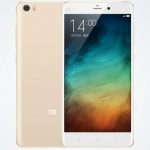
Xiaomi is going hard against Apple in 2015. CEO Lei Jun recently gave several shoutouts to the Apple's inferior design quality on the iPhone 6 when compared to the Mi Note.
And now the next step in the battle will focus on swapping iPhones for Xiaomi Mi Note and Mi Note Pro at no extra cost, according to a new report citing Xiaomi's media development director.
Xiaomi reveals its iPhone 6 Plus competitors

Chinese maker Xiaomi is going after iPhone 6 Plus with two new premium phablets unveiled today at a special event in Beijing. Called Mi Note and Mi Note Pro, the two Android handsets feature high-end hardware and, in typical Xiaomi fashion, lower price-tags than their Apple-made rival.
Xiaomi is calling both devices a flagship, although, judging by the specs alone, Mi Note Pro is clearly more deserving of the title, as it features the latest-available technologies. It is also better equipped to take on iPhone 6 Plus, which has proven to be quite successful for a phablet.
Here's how to smuggle 94 iPhones into China (not)

A man has been arrested for attempting to smuggle 94 iPhones into China by strapping all of them to his body.
Custom officers at Futian Port on the Chinese border were alerted to some suspicious activity when they noticed that the individual had a "weird walking posture, joint stiffness and muscle tension".
Motorola returns to China in full swing, with rebranded Nexus 6 in tow

With Lenovo holding the reins, it is no surprise that Motorola has announced its return to China, the biggest smartphone market worldwide. The venerable maker will start selling its best-known smartphones in the country starting early this year.
Consumers in China will be able to get their hands on the second-generation Moto X and Moto G -- the latter with 4G LTE connectivity -- as well as Moto X Pro. For someone who knows Motorola's lineup, Moto X Pro looks like a new smartphone. However, it is a rebranded Nexus 6.
Access to Gmail is blocked in China

China is one of the more 'interesting' counties when it comes to its attitude to allowing unfettered access to the internet. The Great Firewall of China is famed for the restrictions it places on the online activities of Chinese citizens. New data seems to suggest that Google's Gmail is currently blocked in the country.
Dyn Research, a web traffic research company, reports that Gmail traffic is being blocked at the IP level rendering Google's email service inaccessible within most of China. The disruption appears to have started late on Christmas day and is still on-going.
Nokia's HERE responsible for Baidu's maps outside of China

Detailing a partnership that was made public today, Finnish company Nokia revealed that its HERE division will provide maps to Chinese Internet services provider Baidu to use outside of its home market.
Normally, such an announcement would hardly garner any attention. However, it makes Baidu the first Chinese company that will offer location-based services to Chinese residents who are traveling abroad. That's a big deal. And Nokia is at the center of it.
Xiaomi infringes Ericsson patents in India, local court bans sales until February 2015
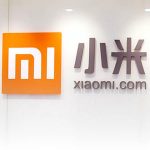
Xiaomi has enjoyed great success in its home market of China, becoming the largest vendor in the country in Q2 2014, beating Samsung for the title. The company also was the third-largest smartphone maker worldwide in Q3 2014. And things appear to only be looking up for Xiaomi, with shipments expected to grow at a still rapid pace.
One of the reasons why Xiaomi has managed to reach the top spot in its home country is the permissive local legal system, in relation to patents. The company hasn't really been challenged locally by any of the big non-Chinese players, as quite likely any suits filed against it for patent infringement would be lost by the plaintiffs. Western companies have been dealing with this problem for (too) many years. However, as Xiaomi expands into India, it has to deal with a different legal system, one which just sided with Ericsson in a case of patent infringement. The outcome?
Russia and China have the best hackers

So which country boasts the most skilled hackers? Well, that would be Russia and China, at least according to a new report from MWR InfoSecurity.
In a survey of UK cyber-security pros, MWR found that 34 percent believed the most skilled hackers are Russian. China was second, although quite some distance behind Russia with 18 percent saying Chinese hackers were the most highly skilled.
Xiaomi is the third-largest smartphone maker
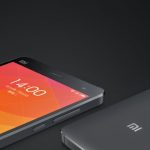
For a manufacturer that has only been selling smartphones for a couple of years now, Xiaomi is doing better than expected. The Chinese company, founded in 2012, became the third-largest smartphone vendor in Q3 2013, surpassing the likes of Lenovo, LG and Huawei. Xiaomi is also closing in fast on Apple, which has enjoyed a comfortable lead, in volumes, over its immediate competition.
Xiaomi's shipments have increased by 211.3 percent year-over-year, to 17.3 million units in the past quarter from just 5.6 million units in Q3 2013. That is more than eight times higher than the market average, of 25.2 percent. Meanwhile, Apple's shipments only grew by a mere 16.1 percent, which is well below the market average, to 39.3 million units from 33.8 million units.
Recent Headlines
BetaNews, your source for breaking tech news, reviews, and in-depth reporting since 1998.
© 1998-2025 BetaNews, Inc. All Rights Reserved. About Us - Privacy Policy - Cookie Policy - Sitemap.